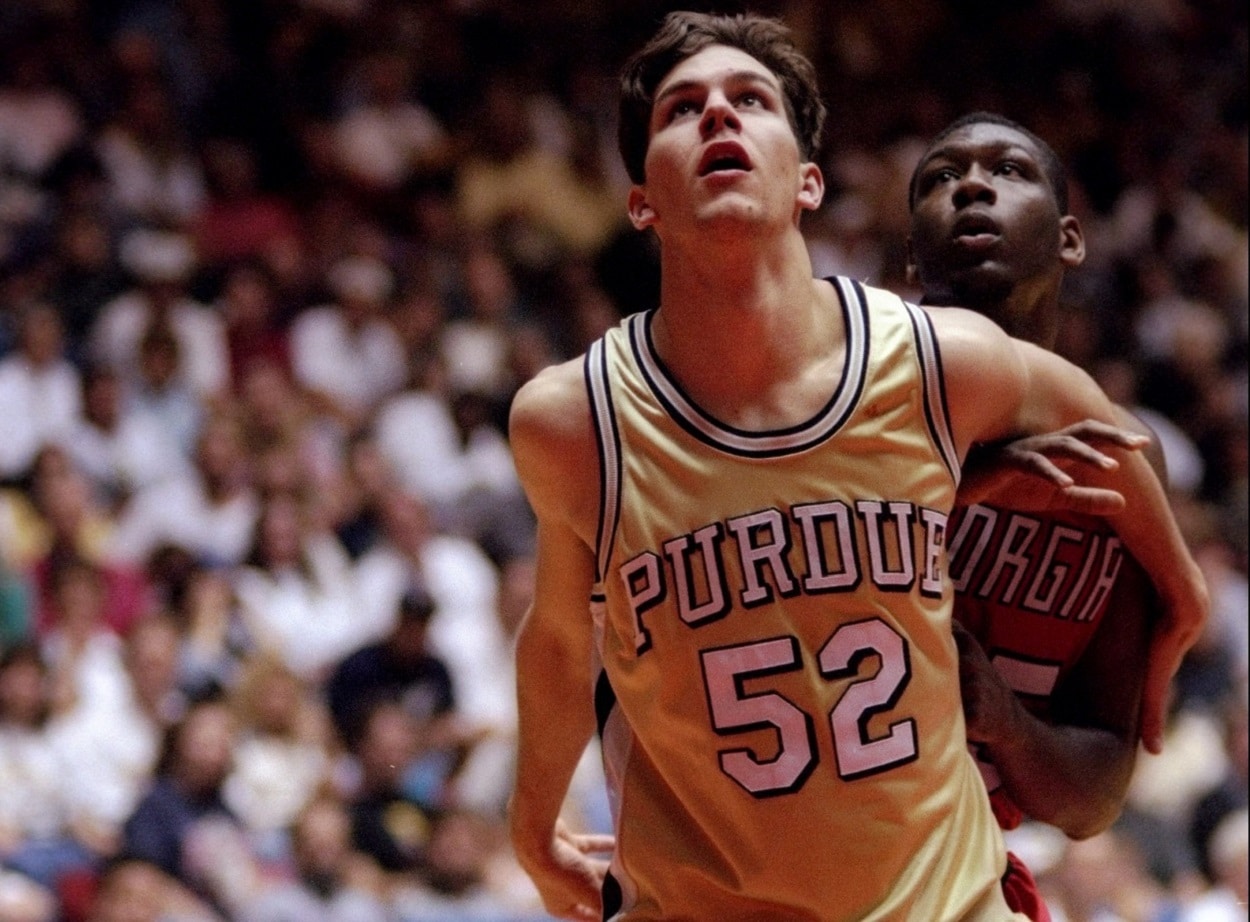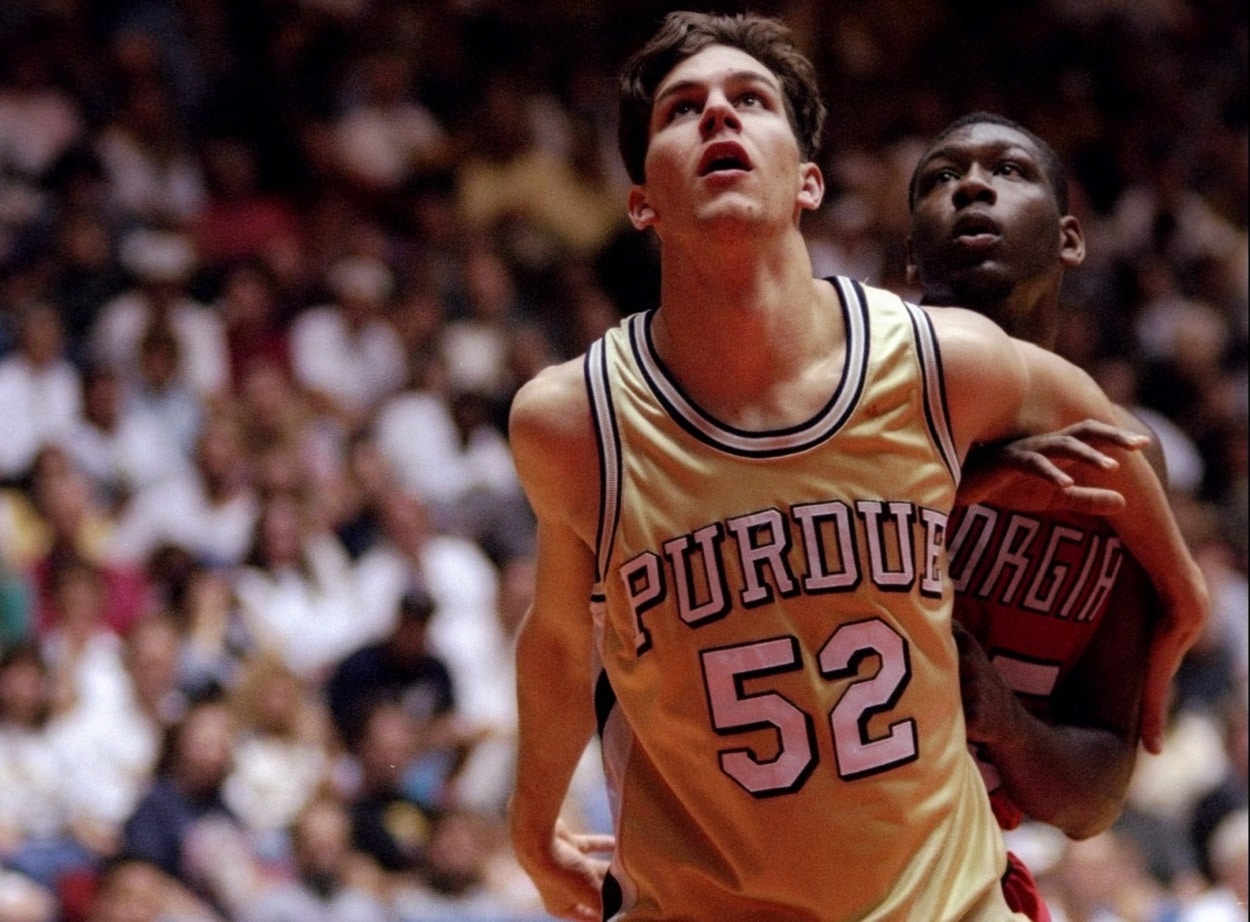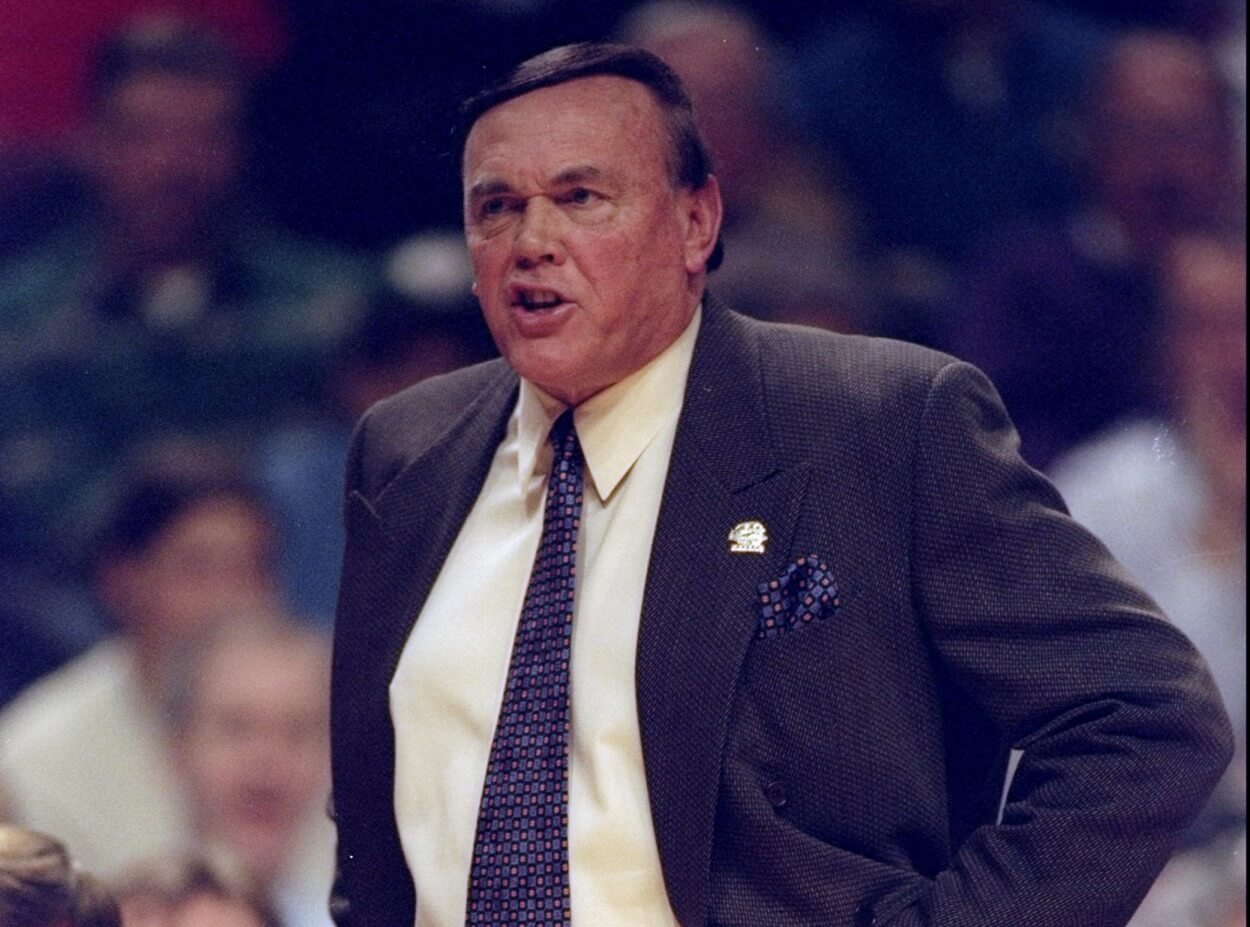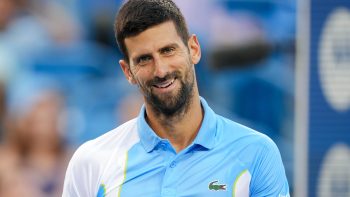NCAA
Why Did Purdue Have to Forfeit 24 Games the Last Time They Were a No. 1 Seed in the NCAA Tournament?

With a 29-5 overall record during the 2022-23 college basketball season, the Purdue Boilermakers, who won both the Big Ten regular-season and tournament titles, are a No. 1 seed in the NCAA Tournament for just the fourth time in school history. This marks their first time as a No. 1 seed without Gene Keady on the sideline.
The Boilermakers were one of the top four for the first time in 1988, reaching the Sweet 16 before falling to fourth-seeded Kansas State. In 1994, behind the strong season from Naismith College Player of the Year Glenn Robinson, Purdue went one step further, advancing to the Elite Eight before taking a loss to second-seeded Duke.
The last time Purdue was a No. 1 seed in the NCAA Tournament was the 1995-96 season, a campaign in which the Boilermakers went 7-23 overall and finished 10th in the Big Ten with a conference record of 6-12.
Wait, what?
Oh, did I fail to mention that the last time Purdue was a No. 1 seed, they were busted for recruiting violations and forced to vacate wins?
The last time Purdue was a No. 1 seed was in 1996

Despite the loss of Glenn Robinson following the 1993-94 season, Purdue basketball remained strong in the years that followed. In 1994-95, the Boilermakers went 24-6 and won a second consecutive Big Ten title, earning a No. 3 seed in the NCAA Tournament. But after barely getting past 14th-seeded UW-Green Bay in the opening round, 49-48, they lost in the Round of 32 to sixth-seeded Memphis, 75-73.
Despite the lack of a true superstar, Purdue was again a solid squad in 1995-96. Sure, future two-time NBA All-Star Brad Miller was on the roster, but the sophomore center started just one game that year and averaged just 9.6 points per game. What’s wild is that was good enough for second on the team behind only sophomore guard Chad Austin, who scored just 12.8 points per game.
The well-balanced Boilermakers averaged just 73.1 points per game that season, ranking 146th in the country, but allowed just 64.3, good for 29th. And behind that strong defense, Purdue went 25-5 in the regular season and 15-3 in conference games to win a third straight Big Ten title, also earning a No. 1 seed in the NCAA Tournament.
Purdue nearly became the first top seed to lose to a No. 16 seed, but they just squeaked by Western Carolina in the opening round, 73-71. But they didn’t have enough to survive eighth-seeded Georgia in the second round, losing 76-69 to end their season with a 26-6 overall record.
At least, that’s what the Boilermakers’ mark would have been that year had they not gotten hit with some massive sanctions.
Purdue was forced to forfeit 24 games from the 1995-96 season, including both from the NCAA Tournament

In 1997, the NCAA began to investigate Purdue on claims of recruiting violations. The biggest alleged infraction pertained to Luther Clay, a 6-foot-9 center from Ohio who was a freshman during the 1995-96 campaign.
The allegations claimed that Purdue assistant coach Frank Kendrick and booster Bill Powers had arranged a loan for Clay in 1995 in the amount of $4,000. It was also said that Kendrick had arranged housing and transportation for the mother of guard Porter Roberts, who was a senior in 1995-96. It was also discovered that Hendrick had made 15 phone calls to recruit Jamaal Davis, who signed with Purdue ahead of the 1997-98 season, in 1996, and urged him to lie about improper transportation during a visit to the campus.
The investigation lasted for quite some time as sanctions weren’t handed down until 1999. And, at the time, those sanctions were some of the steepest in college basketball history.
To start, Purdue was forced to repay $80,000 in earnings received from their appearance in the 1996 NCAA Tournament. And they got off light there as it was originally set to be $900,000. The Boilermakers were also placed on probation, lost several scholarships, and the number of recruiting visits on which they were allowed to go dropped from 12 to four over a two-year period. Kendrick was also fined and banned from off-campus recruiting for a year.
In addition, Purdue was forced to forfeit the 24 games in which Luther Clay appeared. The 18 regular-season games which they won with Clay in the lineup turned into losses, and the two NCAA Tournament games were vacated. And that’s how the Boilermakers ended up with a 7-23 overall record and a 6-12 record in the Big Ten. Guess it’s a good thing they didn’t ride that No. 1 seed to a national title as that likely would have been stripped from them.
Despite the record change, however, Purdue is still recognized as the Big Ten champ for the 1995-96 season.











